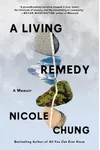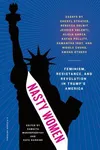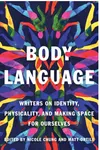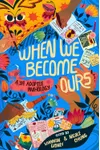Picture a Korean-American storyteller who turned her personal journey into a universal exploration of identity and family—meet Nicole Chung! Born in Seattle in 1981 and raised in Oregon by adoptive white parents, Chung’s memoirs have captivated readers with their raw honesty and insight. Her work, blending personal narrative with sharp social commentary, has made her a standout voice in contemporary literature.
From navigating transracial adoption to confronting systemic inequalities, Chung’s writing resonates with anyone who’s ever questioned where they belong. Let’s dive into her remarkable story, from her early days to her award-winning books and lasting impact.
The Making of Nicole Chung
Nicole Chung was born prematurely to Korean immigrant parents who, facing medical uncertainties and financial hardship, placed her for adoption. Raised by a white Catholic family in a predominantly white Oregon town, Chung grappled with racial difference from a young age. She found solace in books and writing, crafting stories with Asian-American characters to reflect her identity. After earning a degree from Johns Hopkins University, she took a nonfiction class in her mid-20s, sparking her passion for essays. Her career began to take shape as managing editor of The Toast, followed by her role as editor-in-chief of Catapult magazine, where she championed diverse voices.
Nicole Chung’s Unforgettable Stories
Chung’s debut memoir, All You Can Ever Know (2018), is a poignant exploration of her adoption and search for her birth family. Written during her first pregnancy, the book weaves her personal quest with her sister Cindy’s story, uncovering painful truths about abuse and deception. Critics, including The Washington Post, hailed it as one of the year’s finest, praising its nuanced take on race, family, and belonging. It became a national bestseller and finalist for the National Book Critics Circle Award.
Her second memoir, A Living Remedy (2023), shifts focus to the loss of her adoptive parents, who died within two years of each other. With clear, unflinching prose, Chung examines grief, class, and America’s healthcare inequities, drawing from her father’s death at 67 due to diabetes and kidney disease, exacerbated by lack of insurance, and her mother’s battle with cancer during the COVID-19 pandemic. Named a New York Times Notable Book, it’s been celebrated for its emotional depth and social critique.
Chung’s style is intimate yet incisive, blending personal storytelling with broader societal questions. Her essays, published in outlets like The Atlantic and The New York Times, tackle race, gender, and media, often reflecting on her experiences as a transracial adoptee. Her work stands out for its empathy and ability to make the personal political, inviting readers to confront uncomfortable truths.
Why Nicole Chung Matters
Nicole Chung’s memoirs have reshaped conversations about adoption, identity, and inequality. By sharing her story as a transracial adoptee, she’s given voice to experiences often overlooked in mainstream literature, inspiring readers to reflect on their own roots and relationships. Her critique of systemic issues, from healthcare disparities to class divides, resonates in a world grappling with these challenges. As a mentor for Periplus, a collective for writers of color, she’s also paving the way for new voices, ensuring diverse stories find their place.
Her work’s universal appeal lies in its honesty—whether she’s exploring love, loss, or belonging, Chung connects with readers across backgrounds. Her awards, including the Tillie Olsen Award, underscore her influence, but it’s her ability to make readers feel seen that cements her legacy.
About Nicole Chung
- Born: May 5, 1981, Seattle, Washington
- Key Works: All You Can Ever Know (2018), A Living Remedy (2023)
- Awards: National Book Critics Circle Award finalist, Tillie Olsen Award
- Fun Fact: Chung lives in Washington, D.C., with her husband and two daughters.
Snag All You Can Ever Know or A Living Remedy and dive into Nicole Chung’s heartfelt, thought-provoking world!



